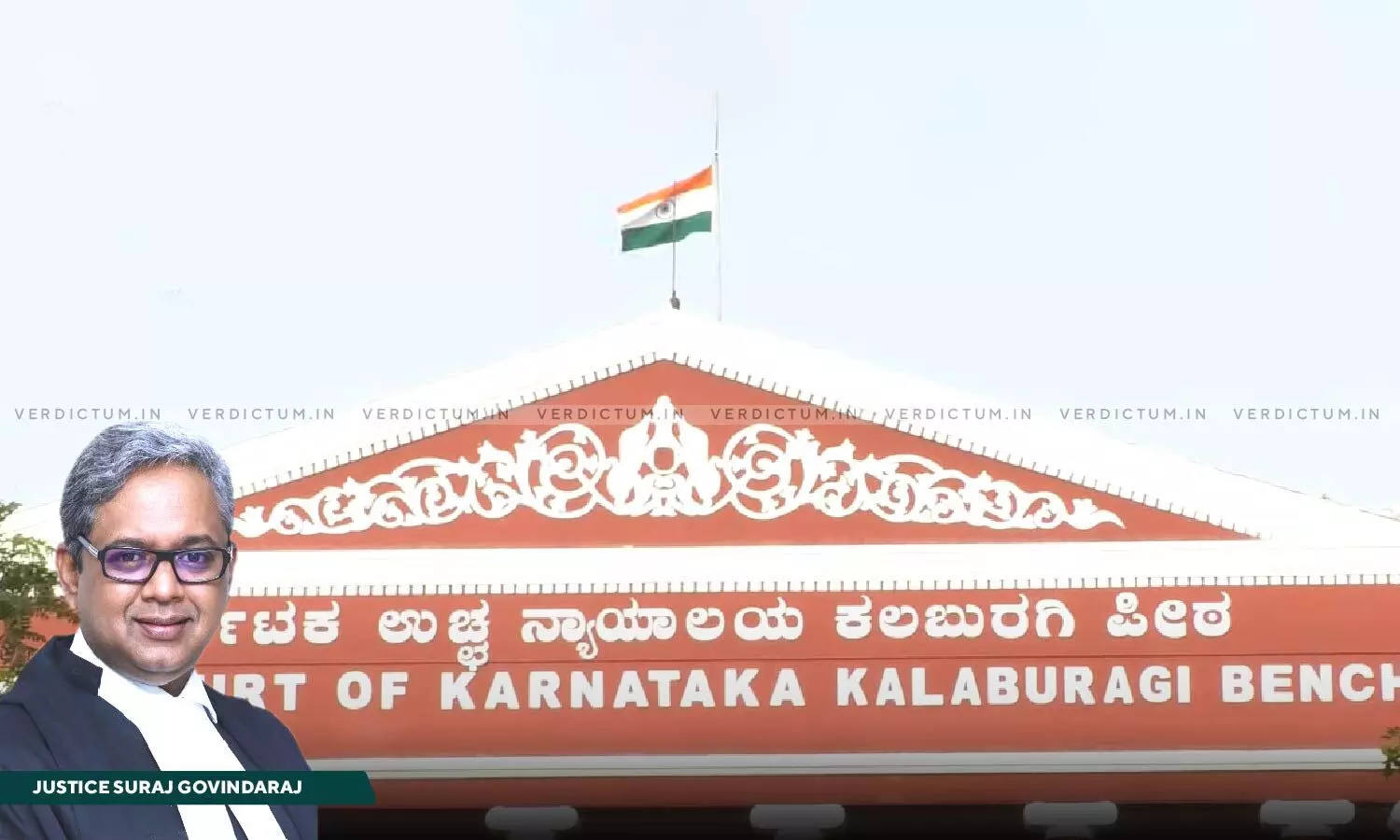
Obtaining Trademark Registrar's Opinion Not Mandatory for Police Search & Seizure: Karnataka HC
 |
|The Karnataka High Court has clarified the requirement of the police to obtain the opinion from the Registrar of Trademark before search and seizure is not mandatory, and a violation would be considered to be a mere irregularity rather than a fatal flaw in the investigation.
In that context, the Bench of Justice Suraj Govindaraj observed that, "the obtaining of the opinion from the Registrar of Trademarks as required under the proviso to Subsection (4) of Section 115 of the TM Act have been held not to be mandatory and further, a violation thereof has been held to be an irregularity which cannot be set aside unless a failure of justice has been occasioned which would have to be established during the course of trial."
The petitioner challenged the legality of certain judicial orders in this case. They sought to overturn the order in a case which involved allegations of offences under Sections 482, 483, and 420 of the Indian Penal Code (IPC), read with Sections 102, 103, and 104 of the Trade Marks Act, 1999.
The petitioner, who operated a gram flour business under the brand "MRS Ganapathi," argued that the complaint was initially lodged under Section 63 of the Copyright Act, 1967, and that the chargesheet later substituted this with offences under the TM Act. They claimed that this substitution was done intentionally to bypass the procedural requirements stipulated in Section 115(4) of the TM Act, which mandated that only police officers of Deputy Superintendent rank or above could issue search instructions after obtaining the Registrar of Trade Marks' opinion. The petitioner contended that the entire process was flawed and constituted an abuse of legal process.
In response, the complainant argued that no abuse of process occurred. They asserted that the complaint, though initially recorded under the wrong provision, was intended to address trademark infringement issues. The complainant also suggested that any procedural lapses were minor and did not warrant quashing the proceedings.
The complainant also highlighted cases where similar procedural issues were deemed not to affect the overall validity of the proceedings.
The Court addressed the issue of whether obtaining the Registrar of Trade Marks' opinion, as mandated by the proviso to Subsection (4) of Section 115 of the Trade Marks Act (TM Act), was essential for the legality of the police actions.
In that context, it was observed that, "under the proviso to Subsection (4) of Section 115 of the TM Act, it is required for the Police officer to obtain an opinion of the Registrar before making any search and seizure. In the event of the Registrar indicating that there is an offence committed, then the Police officer shall carry out search and seizure. In the event of the Registrar indicating that there is no offence committed, then no search or seizure can be carried out since the Police officer shall have to abide by the opinion so given and obtained."
In the present case, despite the seizure of incriminating articles without the Registrar’s opinion, the Court found that this omission was an irregularity rather than a fatal flaw in the investigation. It held that the irregularity did not warrant the exercise of jurisdiction under Section 482 of the Cr.PC. Instead, the accused could challenge this irregularity during the trial to demonstrate any resulting failure of justice. Consequently, the Court concluded that the trial could proceed, and the complaint would only be dismissed if the accused proved that the irregularity led to a failure of justice.
Subsequently, the petition was dismissed.
Cause Title: Manjunatha MS vs State & Anr.
Click here to read/download the Judgment